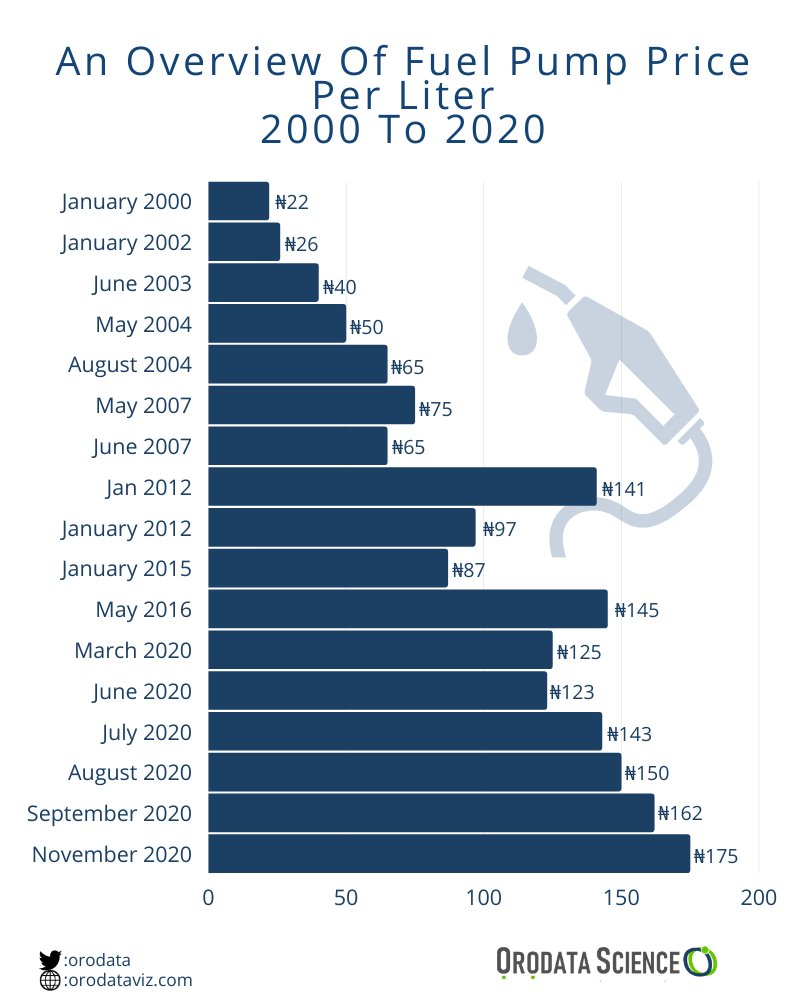Agriculture was the major source of Nigeria’s revenue through the exportation of cash crops such as rubber, hide and skin, groundnut, oil and palm kernels, cocoa, and coffee before the discovery of petroleum in Oloibiri, in the Niger Delta region. Since the discovery, the petroleum industry has been the country’s major source of revenue as it became the backbone on which the national budget rests.
The Government decided to subsidize the price of fuel pump price, with the intent to support the citizens who live on less than US$2 daily to provide stable and secure prices to families and small businesses, thereby keeping the cost of living low for them.
Over time, the subsidies being paid by the government became too cumbersome for the government, while the intended objectives of the introduction of subsidy were not met as 85% of people who live on less than US$2 a day gain little help directly as they do not consume much gasoline.
In 2003, the government, saddled with the payment of the ever-increasing amount of subsidy decided to remove subsidy by deregulation of the downstream sector of the petroleum industry. This met with great resistance and the step was not taken but on the 4th of June 2020, the government proceeded with the full deregulation of the downstream petroleum sector with the removal of the existing cap on fuel prices.
It was stated that this act of the government saved the country about 1 Trillion Nigerian Naira which could be diverted into other infrastructures and sectors in the country.

Since the deregulation, the fuel pump prices have been increased over 3 times with the reason being that the prices are now determined fully by market forces. Currently, the fuel pump price is N175 per liter.
